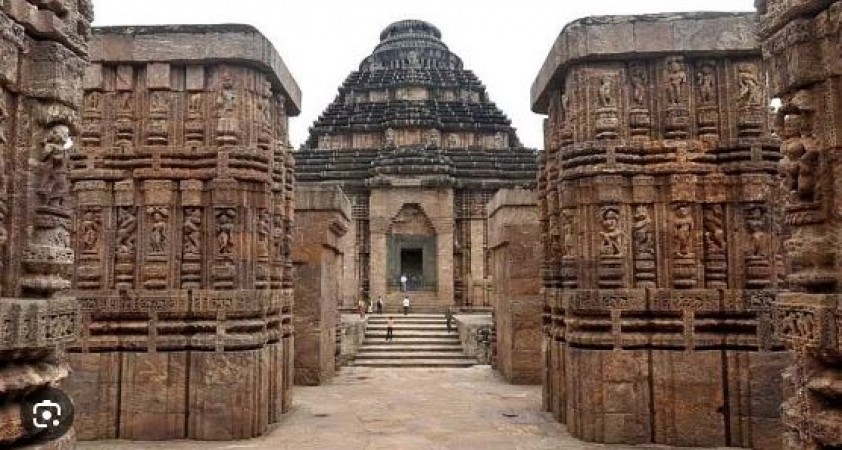
Indian history is rich and diverse, spanning thousands of years. It is a tapestry of captivating events that have shaped the nation's culture, heritage, and identity. From ancient civilizations to colonial rule and independence, India's history is filled with intriguing stories and remarkable milestones. This article aims to explore some of the most interesting events in Indian history, shedding light on significant moments that have left an indelible mark on the nation.
1. The Indus Valley Civilization (2600 BCE–1900 BCE): The Indus Valley Civilization, also known as the Harappan Civilization, was one of the world's earliest urban civilizations. It flourished in the northwestern region of the Indian subcontinent, with well-planned cities like Mohenjo-Daro and Harappa. The advanced urban planning, drainage systems, and remarkable artifacts found in these cities depict the high level of sophistication achieved by the people of that era.
2. The Mauryan Empire (322 BCE–185 BCE): Under the leadership of Emperor Chandragupta Maurya, the Mauryan Empire emerged as a powerful empire in ancient India. It expanded its territory to encompass almost the entire Indian subcontinent. Emperor Ashoka, the grandson of Chandragupta Maurya, is renowned for his conversion to Buddhism and his efforts to spread peace and non-violence. The Mauryan Empire left an enduring legacy in the form of its administrative systems and cultural contributions.
3. The Mughal Empire (1526 CE–1857 CE): The Mughal Empire, founded by Emperor Babur, witnessed an era of significant cultural and architectural achievements. The Mughals introduced Persian and Central Asian influences, leading to the creation of magnificent structures like the Taj Mahal and the Red Fort. The empire's cultural assimilation and patronage of the arts laid the foundation for the syncretic Indo-Islamic culture that still thrives in India today.
4. The British Raj (1858 CE–1947 CE): The British Raj marks a crucial period in Indian history, as it signifies the colonization of the Indian subcontinent by the British Empire. The East India Company's gradual control over trade eventually led to the establishment of direct British rule. The British Raj had a profound impact on India's political, social, and economic fabric. It also sparked various movements for independence, with notable figures like Mahatma Gandhi leading the fight for freedom.
5. The Indian Independence Movement (1857 CE–1947 CE): The Indian Independence Movement was a watershed moment in Indian history. It was a non-violent struggle against British rule and a catalyst for change in the nation. Mahatma Gandhi's philosophy of non-violence, coupled with the efforts of freedom fighters like Jawaharlal Nehru and Subhas Chandra Bose, galvanized the masses and led to the eventual independence of India on August 15, 1947.
6. The Partition of India (1947 CE): The Partition of India is a significant event that occurred alongside independence. The country was divided into India and Pakistan, resulting in widespread communal violence and mass migrations. The partition led to the displacement of millions of people and created lasting tensions between the two nations. The repercussions of this event continue to shape the socio-political landscape of the subcontinent.
7. The Green Revolution (1960s–1970s): The Green Revolution was a period of agricultural transformation in India, aiming to increase food production and alleviate poverty. It involved the introduction of high-yielding varieties of seeds, modern farming techniques, and better irrigation methods. The Green Revolution had a profound impact on India's agricultural landscape, making it self-sufficient in food production and transforming the nation into one of the world's leading agricultural economies.
8. The Economic Liberalization (1991 CE): In 1991, India underwent economic liberalization, embracing market-oriented reforms and opening its doors to foreign investments. This shift marked a significant departure from the previous era of socialist policies. The economic liberalization resulted in rapid economic growth, the emergence of a vibrant middle class, and an increase in foreign trade. It propelled India onto the global stage as a key player in the world economy.
9. The Mars Orbiter Mission (2013 CE): The Mars Orbiter Mission, also known as Mangalyaan, is a remarkable feat of Indian space exploration. Launched by the Indian Space Research Organization (ISRO), it successfully placed a spacecraft in Mars' orbit, making India the first country to achieve this on its maiden attempt. The mission showcased India's technological prowess and its commitment to scientific advancements.
10. The Goods and Services Tax (2017 CE): The introduction of the Goods and Services Tax (GST) in 2017 marked a significant economic reform in India. It aimed to streamline the country's complex tax structure and create a unified market. The GST replaced multiple indirect taxes, simplifying the tax regime and promoting ease of doing business. The implementation of the GST had far-reaching implications for India's economy and taxation system.
Conclusion: Indian history is replete with fascinating events that have shaped the nation's past and continue to influence its present. From the ancient Indus Valley Civilization to modern-day achievements in space exploration and economic reforms, India's journey has been marked by diversity, resilience, and progress. By understanding and appreciating these historical events, we gain valuable insights into the nation's cultural heritage and the aspirations of its people.
The Moche Civilization: Unveiling Peru's Intricate Pottery and Art
Unlocking the Power of Technology and Engineering: Revolutionizing Water Conservation Efforts
The Hang Drum: Learning about the Mesmerizing Steel Percussion Instrument